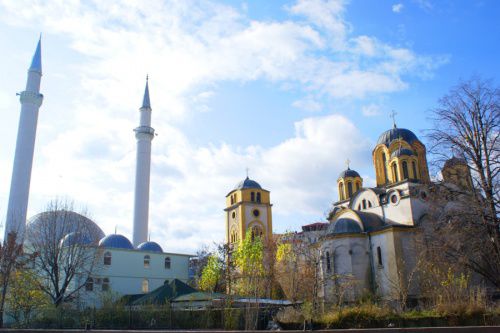In a joint statement delivered Thursday, the Catholic-Muslim Forum condemned acts of terrorism, oppression, and violence, affirming it is never acceptable to use religion to justify such acts. The Catholic-Muslim Forum was held Nov. 11-13 in Rome. It was established in 2008 for dialogue between the religions, and it meets every three years to harvest the fruit of more grassroots dialogue pursued between the forums. The group met on Wednesday with Pope Francis, who encouraged them to persevere in the path of interreligious dialogue and praised the common effort of the two religions in society. This year’s meeting occured as an uprise of violence in the name of religion has taken place in the Middle East with the establishment in Iraq and Syria of the Islamic State, a caliphate that has persecuted all non-Sunni Muslims in its territory. The statement of the Catholic-Muslim Forum makes four points: it condemns violence in the name of religion; address the education of young people; commits to fostering interreligious dialogue; and asks for more opportunities to together serve societies. It acknowledged the “many examples across the world of active Catholic-Muslim collaboration in educational, charitable, and relief efforts” and recognized that the gathering “took place in a time of severe tension and conflict in the world, underlining the vital importance of enhanced service and mutual cooperation.” The delegates of the Catholic-Muslim Forum “unanimously condemned acts of terrorism, oppression, violence against innocent persons, persecution, desecration of sacred places, and the destruction of cultural heritage.” “It is never acceptable to use religion to justify such acts or to conflate such acts with religion,” the joint statement read. The statement also stressed that the education of young people is of “the utmost importance for the promotion of a well-rounded identity which builds respect for others,” and that for this reason “school curricula and textbooks should portray an objective and respectful image of the other.” At the same time, delegates also underscored the importance “of the culture of interreligious dialogue for deepening mutual understanding,” being “required to overcome prejudice, distortions, suspicions, and inappropriate generalizations, all of which damage the peaceful relationships we all seek.” The participants also encouraged “Christians and Muslims to multiply opportunities for encounter and cooperation on joint projects for the common good.” The discussion also promoted the establishment of a permanent Muslim-Catholic committee to address the most important issues, which some participants wanted included in the final declaration. “Beyond finding a common conscience and reaction to instrumentalization, we should stress the added value of religions. Our goal is not just finding common grounds of dialogue, but rather providing young people a new language to understand the inner sense of life,” Yahya Pallavicini, vice-president of the Italian Muslim Association Co.Re.Is., told CNA Nov. 13. Pallavicini has always been involved in the forum, which was established in following the drafting of a letter 138 Muslim scholars addressed to Benedict XVI. Titled “A Common Word Between Us and You,” the letter was aimed at finding common grounds of dialogue between Catholicism and Islam, proposing as discussion topics the love of God and neighbor. In response to the letter, Benedict said that the discussion should focus first on human dignity and religious freedom, since this implies the proposed topics. The forum meets every three years, alternating between the Vatican and a Muslim country. The 2011 event was held in Amman, the Jordanian capital. Initially, the delegations were composed of 24 members each, but the number was later reduced to 12 each. The head of the Catholic delegation is Cardinal Jean-Louis Tauran, president of the Pontifical Council for Interreligious Dialogue, while the Muslim delegation is headed by Prince Ghazi bin Muhammad bin Talal of Jordan, president of the al-Bayt Institute for Islamic Thought, and leading promoter of the letter of the 138. Due to the health reasons, Ghazi was not present at this week's gathering; the Muslim delegation was this time led by Seyyed Nossein Nasr of George Washington University, and included for the first time Omar Abboud, a long-time friend of Pope Francis'.

